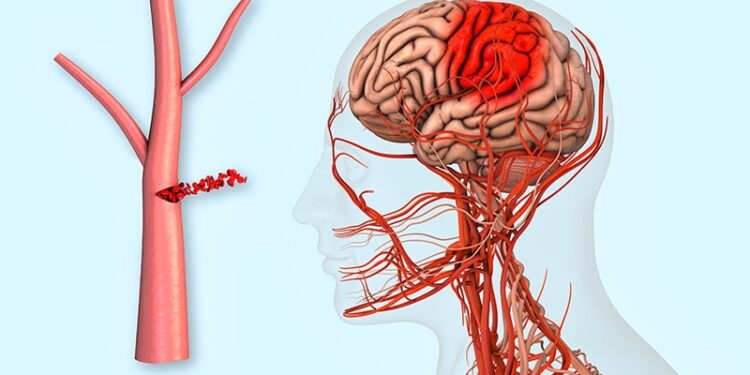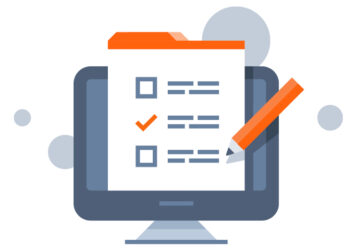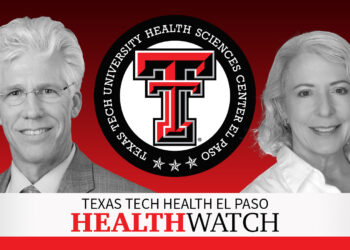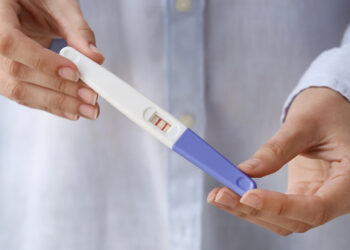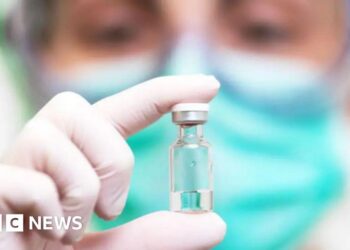TOPLINE:
In patients with atrial fibrillation (AF) with a recent episode of intracranial hemorrhage (ICH), the use of oral anticoagulants significantly reduced net adverse clinical events — primarily driven by a reduced risk for ischemic stroke/systemic thromboembolism — but with an increased risk for recurrent ICH.
METHODOLOGY:
- Oral anticoagulants prevent stroke in patients with AF, but their efficacy in those who have recently experienced an ICH remains unclear.
- Researchers conducted a systematic literature review through March 2025 and performed an updated meta-analysis of randomized controlled trials comparing the use of oral anticoagulants with placebo or antiplatelets in patients with nonvalvular AF after a spontaneous ICH.
- The analysis included 653 patients (weighted mean age, 78.2 years; 38% women; 95% White) from four trials with a low risk for bias, with follow-up durations ranging from a mean of 0.53 years to a median of 1.9 years.
- The primary endpoint was net adverse clinical events — a composite of ischemic stroke/systemic thromboembolism, nonfatal myocardial infarction, cardiovascular death, recurrent ICH, and extracranial major bleeding.
TAKEAWAY:
- The breakdown of oral anticoagulants used was 65% apixaban, 15% edoxaban, 14% dabigatran, 4% rivaroxaban, and 1% warfarin.
- The use of oral anticoagulants reduced net adverse clinical events by 31% (relative risk [RR], 0.69; 95% CI, 0.52-0.93) and ischemic stroke/systemic thromboembolism by 76% (RR, 0.24; 95% CI, 0.09-0.61), translating into a number needed to treat of 12 and 8, respectively.
- However, oral anticoagulants carried a more than threefold higher risk or recurrent ICH (RR, 3.20; 95% CI, 1.30-7.85), translating to a number needed to harm of 22.
- There were no significant differences in fatal ischemic stroke, fatal ICH, major extracranial hemorrhage, myocardial infarction, or cardiovascular death on the basis of oral anticoagulant use.
IN PRACTICE:
“[This] meta-analysis informs shared decision-making between clinicians and patients, demonstrating a net clinical benefit of OACs [oral anticoagulants] predominantly through a reduction in ischemic stroke/systemic thromboembolism, while being cognizant of an increased risk of recurrent ICH,” the researchers wrote.
“The magnitude of benefit and risk may differ across ICH subtypes and with the timing of OACs initiation, warranting further investigation through [individual patient data] meta-analysis,” they further added.
SOURCE:
This study was led by Kuan-Yu Chi, MD, and Pei-Lun Lee, MD, of Jacobi Medical Center, Albert Einstein College of Medicine in New York City, and Yu Chang, MD, of the National Cheng Kung University in Tainan, Taiwan. It was published online on July 21, 2025, in the Journal of the American College of Cardiology.
LIMITATIONS:
This study lacked individual patient data, which prevented deeper analyses such as timing of events. The number of included trials and participants were insufficient to detect the effects on outcomes that occurred less frequently. All the included trials had an open-label design.
DISCLOSURES:
Three authors reported receiving research funding and awards from various sources including the Johns Hopkins University Claude D. Pepper Older Americans Independence Center funded by the National Institute on Aging; National Heart, Lung, and Blood Institute; and National Institutes of Health National Institute of Aging. One author reported serving as a consultant for Novo Nordisk, Merck, and HeartFlow, Inc.
This article was created using several editorial tools, including AI, as part of the process. Human editors reviewed this content before publication.
Source link : https://www.medscape.com/viewarticle/anticoagulants-atrial-fibrillation-post-intracranial-2025a1000j2q?src=rss
Author :
Publish date : 2025-07-21 14:10:00
Copyright for syndicated content belongs to the linked Source.

